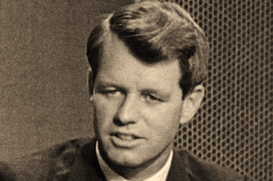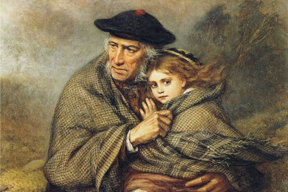Can Create Opportunities for Greatness
I recently read an article in which some movie guru explained one of the reasons why Casablanca was a great movie. The writer cited many parts of the screenplay that weren’t written until the day they filmed that particular scene. The result was a type of open-endedness to the screenplay. The director could adapt to the situation as things changed during the filming of Casablanca.
So, that is the backstory for this article. This Christmas Eve, Ginger and I had dinner together. She had extra portions of dry and wet Royal Canin dog food and her medications. I made specially prepared lamb chops for my main course. I made my famous bananas flambé dessert. Ginger watched as I lit the rum.
After I finished enjoying my dessert, we sat down and talked. Ginger loves these times together. Ginger can speak American English without any Irish accent. However, she can’t read yet, so I read to her the short story, The Story of the Other Wise Man, by Henry van Dyke.

People throughout the world know the story of the three wise men who visited the baby Jesus in a manger in Bethlehem. However, a legend emerged over time about the fourth wise man, whose name was Artaban (رطبا).
Artaban lived in Ecbatana in ancient Persia. He was a magi priest. Magi have special knowledge about the movement of the stars, but they also know their vast wisdom has limitations. That dichotomy between vast knowledge and knowing they lack a large database benefits them.
Artaban was a fascinating magi. He was a dreamer with inner conflicts. He was caring with an inflectable quest to find the truth. One evening, he had several priests at his home for a worship service. Magi priests were also called fire worshipers because they were followers of the god Ahura Mazdā.
After worshiping, Artaban discussed the sighting of a star. It was seen as a great omen for the future birth of a great leader. Artaban wanted his group to join the three other magi, Caspar, Melchior, and Balthazar, to follow the star to Jerusalem. While he was excited about going on this pilgrimage to see the infant, no one else wanted to join him.
Ginger listened to my story by van Dyke. She said to me that I was a dreamer also. Nevertheless, Ginger said that my attribute was a mixed bag. I was surely a dreamer, but few wanted to join me in my dreams. I didn’t reply, but Ginger was correct. I am a dreamer, and most around me aren’t. After thinking quietly about her comment, I continued to tell Ginger about Artaban.
None of the other magi wanted to travel with Artaban to meet their fellow magi. However, his closest friend was the last to leave that night. He told Artaban, “It is better to follow even the shadow of the best than to remain content with the worst. And these who would see wonderful things must often be ready to travel alone.”
Artaban was excited. He sold everything he owned and purchased “three jewels—a sapphire, a ruby, and a pearl—to carry them as tribute to the King.”
Artaban saddled his horse and began his journey to meet Caspar, Melchior, and Balthazar. He loved his horse; strangely, the horse understood that his master had a purpose. Ginger interrupted my story to add that the horse and she had a common interest in their masters’ quests. I smiled in agreement and continued to tell her the story.
Artaban knew he had to hurry to meet his magi friend lest they leave without him. However, he stopped and assisted a sick peasant. He gave him water, food, and herbal salve. The poor peasant had no money to pay Artaban. However, he said the baby Artaban wanted to visit won’t be found in Jerusalem but in Bethlehem.

Artaban was late. Caspar, Melchior, and Balthazar had left a note for Artaban to follow them into the hot sands of the desert.

Caspar, Melchior, and Balthazar
Artaban had missed his friends but didn’t want to miss seeing the infant leader. So, he went to Babylon and exchanged his sapphire for a camel and food. Finally, he got to Bethlehem. The Three Magi had gotten there three prior, presented their treasures to Jesus, and had left. Artaban still wanted to see the infant, and he still had the ruby and the pearl.
He asked a woman about the Three Wise Men. She told him they had left, and the parents and their baby also fled the city and journeyed to Egypt. The Roman legions had heard about the infant’s birth and were trying to find him. They were killing all the infants in Bethlehem, hoping to kill this great child.
The woman providing Artaban with all the information feared that Roman soldiers would murder her baby. Artaban was so concerned for the safety of the child and its mother. So, when a centurion captain came to her home, Artaban bribed him with his ruby. The centurion left without harming anyone.

Ginger was taken by Artaban reaching out to others. Finally, after a couple of minutes, I spoke to Ginger, who was perplexed trying to grasp the reason for Artaban helping others. “Ginger, you know my mantra, ‘It is in giving that we get.’”
Then, I continued telling Ginger about Artaban. He had used the sapphire and the ruby in his quest to find the infant leader. All that remained was the pearl. Those unexpected events, like helping the old peasant and the young mother, helped Artaban in his quest. Nonetheless, thirty-three years had lapsed, yielding nothing for this fourth magi. The infant that Artaban sought was an adult. He was in Jerusalem. It was like when he was in Bethlehem. There was some sort of social unrest.
There Artaban was, still looking for the once infant. While wandering the streets of Jerusalem, he asked about what was happening. They told him that the Romans were going to crucify a couple of robbers and some man who claimed he was the son of God. Artaban, finally, might be able to save the man he had searched for all those years. As he rushed to go to the place of the execution, he noticed a young woman being beaten and dragged through the streets. She broke away from the men and ran to Artaban. She was going to be sold into slavery to pay the debts of her deceased father.

Artaban again was caught between giving the son of God a gift and helping someone with a peril. And he did what was right. Artaban gave her the guard the pearl as a ransom payment for the young lady.
It was then the earth quaked, and darkness covered the sky. At that moment, a tile from the roof fell and hit Artaban on the head. Confused and on the verge of dying, Artaban starts to talk to someone.
Artaban moved his lips as if he were answering the voice. “Not so, my Lord! For when did I see thee hungry and fed thee? Or thirsty, and gave thee drink? When did I thee as a stranger and took thee in? Or naked, and clothed thee? When did I thee sick or in prison, and came unto thee? Three-and-thirty years have I looked for thee; but I have never seen thy face, nor ministered to thee, my King.”
Having replied, Artaban heard the voice again. “Verily I say unto thee, inasmuch as thou hast done it unto one of the least of these my brethren, thou hast done it unto me.”
I stopped and looked at Ginger but didn’t say anything. When I do that, Ginger understands that I want an answer. I’ll give her that look during the day, and she’ll jump up knowing I want to go for a walk or play Chuckit with her.
However, it was late in the evening on Christmas Eve to play with Ginger outside. I waited as Ginger processed my look. Then Ginger spoke. “You are Artaban. You both are driven. Neither of you will accept failure. It bothers you about important things like politics, social issues, and how people are put down or discriminated against. You never quit writing about these social problems.”
I continued to look at Ginger and remained silent. She took my cue and added, “We had a very nice Christmas Eve together. We only missed one thing: Ti Ti. You promised her that she would be here with us this Christmas. It hurts that you have failed your granddaughter. You will continue your quest. Artaban is a role model for you.”
This is a recording of The Story of the Other Wise Man by Henry van Dyke.
This video is a movie based on The Story of the Other Wise Man.
Finally, I will read Ginger the poem, The Vision of Sir Launfal, written by James Russell Lowell. It parallels The Story of the Other Wise Man.

















